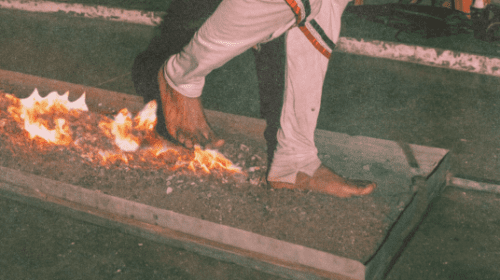No two addiction interventions are alike. As prepared as you think you might be when organizing an intervention for your loved one, the outcome is never predictable, and may even be more dramatic than you bargained for. Sometimes interventions are messy; sometimes they’re dramatic; sometimes they end in tears and hugging; sometimes they end in name-calling and even physical confrontation.
One thing that most interventions share, however, is an element of closeness among the participants and the person for whom they have assembled; an element of closeness that has essentially been banned in country and culture in the wake of the coronavirus pandemic. As relapses continue to climb during this public health crisis, it’s critical that support mechanisms for facilitating treatment are not interrupted. How, then, do we go about organizing an intervention when we can’t get close to the people we love. Recovery Unplugged has some thoughts, based on some of the interventions we’ve conducted since the outbreak began.
There’s Always Another Way: Intervention Innovation
Just like no two cases of addiction and no two family-dynamics are exactly alike, no two interventions are alike, either. There is not a one-size-fits-all process. There are intervention models that don’t require gatherings at all. Try working with an interventionist through Zoom or another video conferencing platform so they can and have one representative from your group partner with them to appeal to your addicted loved one directly. This will limit the number of in-person participants for safety reasons and can also make your loved one feel more at ease and less ambushed.
No Surprises: The Invitation Model of Addiction Intervention
The invitation model of intervention is just like the conventional “Johnson” model, but it takes away the surprise factor. A person from your group is selected to speak with your loved one about getting help and talking with other members before the meeting actually happens. This is more conducive to taking interventions to a virtual platform, and it allows people to be part of the intervention from anywhere in the world.
Scale It Back
If you feel that the traditional route of an in-person gathering is still the best way of organizing an intervention, limit the number of group members to a safe and acceptable amount to account for social distancing within the location you choose. The reality is that intervention groups should be limited to close loved ones, so limiting the number of people involved to a few family members and close friend makes sense in all contexts. No matter how many people you have at the meeting, wear a mask.
Take It Outside
Consider the health climate of your current location when organizing an intervention during the COVID-19 pandemic. If you’re living in a state like Florida or Texas (Austin Detox Center, Austin Treatment Center and Austin Rehab Center), where cases continue to spread, consider having your intervention outside to limit exposure and the likelihood of transmission.
Recovery Unplugged offers certified professional addiction interventionists in these states and throughout the country to help you in organizing your intervention during COVID-19 as safely and comfortably as possible. Don’t let this pandemic stop you from guiding your addicted loved one toward the treatment they need. There’s always a way to help.

























